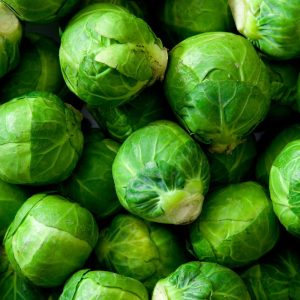You go out for a long run or a hard workout, and the next day that familiar soreness creeps into your muscles. In many ways, it’s a sign of a job well done – your training session produced microtears in your muscles, leading to natural inflammation. Given proper rest and nutrition, those tears will heal and make you stronger and faster.
But if you skip recovery strategies such as downtime and eating right, you may find yourself in a state of progress-plateauing fatigue. What’s more: if you ditch recovery efforts enough times, you may set yourself up for chronic inflammation, which can lead to health issues such as heart disease, diabetes, dementia and even cancer, according to Nature Medicine research.
It’s okay to have some inflammation in the body – inflammatory cells fight off injury, infection and even disease – but if inflammation sticks around for months or years, that’s when other problems can arise.
Mitigating chronic inflammation is crucial for runners, says dietitian Jamie Lee McIntyre: intense exercise can lead to higher levels of inflammatory markers compared with moderate physical activity. The more you demand of your body, the more you should demand of your nutrition, adds Becky Ramsing, senior officer for the Public Health Program at Johns Hopkins Center for a Livable Future in the US.
The good news: eating anti-inflammatory foods can promote overall health. Choose colourful and plant-based foods; many are high in fibre, antioxidants, healthy fats and vitamins. ‘Runners ask a lot of their bodies, so it’s really important to include these foods,’ Ramsing says.
Top anti-inflammatory foods
Colourful vegetables
Colourful vegetables, such as kale, spinach, broccoli and sweet potatoes, contain carotenoids, a phytonutrients known to reduce inflammation.
Cherry juice
About two cups of tart cherry juice a day for 12 weeks can fight inflammation and oxidative stress in generally healthy older adults.
Oily fish
Oily fish, such as salmon and tuna, is full of omega-3 fatty acids, which have strong anti-inflammatory effects.
Nuts
Eating nuts, such as peanuts and tree nuts, is associated with lower inflammatory biomarkers. Research suggests subbing in nuts – rich in unsaturated fatty acids, vitamins and antioxidants – for servings of red or processed meat, eggs, refined grains or potatoes.
Fruit
Fruits pack tons of disease-fighting nutrients, especially berries and citrus fruits, which are flush with vitamin C, an antioxidant shown to fight inflammation.
Healthy oils
Healthy oils, such as olive oil – used for cooking, dressings and sauces – help reduce inflammatory markers. The participants in a Nutrients study had about two tablespoons a day.
Turmeric
Turmeric, a traditional Indian spice used in curry dishes, soups and lattes is rich in the polyphenol known as curcumin, which research associates with lower inflammation.
Inflammatory foods to avoid
Just as anti-inflammatory foods can reduce inflammation in the body, others promote it. Inflammatory foods include refined starches, such as white breads, waffles and pastries, which come with a dose of trans fats or sat fats. ‘Look at labels and avoid anything with trans fats,’ McIntyre says. If you feel yourself slumping after workouts, limit consumption of treats with lots of sugar, such as sweets and cakes.
And while runners need plenty of protein, avoid too much red or processed meats
as your primary source; they’re linked to inflammatory markers in women, according to the American Journal Of Clinical Nutrition. Instead, go for some lean chicken or fatty fish. Regularly consuming highly processed foods, such as soft drinks or deli meats, won’t do your body any favours. In fact, a recent study in The British Medical Journal found an association between a high intake of ultra-processed foods and increased risk of inflammatory bowel disease, such as Crohn’s and ulcerative colitis.
Article source: https://www.runnersworld.com/uk/nutrition/a40833792/anti-inflammatory-foods/




